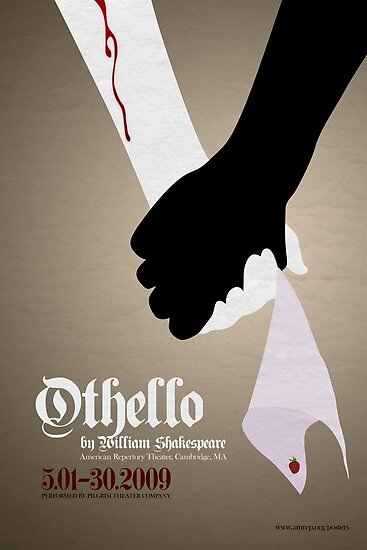
Grateful for this one, by Christine Havens.
 Leave it to Shakespeare to introduce the metaphor “wearing one’s heart on one’s sleeve” through the words of Iago, one of the playwright’s master villains. He says, “I will wear my heart upon my sleeve for daws [crows] to peck at” (Othello, Act 1, scene 1), but will pretend guilelessness in order to destroy Othello. I prefer to think that such manipulative people are the exception, not the rule. However, those who reveal such vulnerability can put others out of their comfort zone. On the day of Pentecost, some in the crowd “sneered” at the disciples speaking in tongues, “and said, ‘They are filled with new wine’” (Acts 2). But we’re told that they are not drunk but filled with the Spirit. They’ve opened themselves and act accordingly as Luke’s narrative unfolds.
Leave it to Shakespeare to introduce the metaphor “wearing one’s heart on one’s sleeve” through the words of Iago, one of the playwright’s master villains. He says, “I will wear my heart upon my sleeve for daws [crows] to peck at” (Othello, Act 1, scene 1), but will pretend guilelessness in order to destroy Othello. I prefer to think that such manipulative people are the exception, not the rule. However, those who reveal such vulnerability can put others out of their comfort zone. On the day of Pentecost, some in the crowd “sneered” at the disciples speaking in tongues, “and said, ‘They are filled with new wine’” (Acts 2). But we’re told that they are not drunk but filled with the Spirit. They’ve opened themselves and act accordingly as Luke’s narrative unfolds.
I’ve been known to sometimes wear my heart on my sleeve. I am far from the only one.
Picture a group of people gathered on the lawn of a church. There’s a Zydeco band washboarding up a storm and meat and veggie options cooking on a well-loved offset barrel smoker. Some of the people are attaching bright paper squares listing Ash Wednesday service times to strands of beads. Others in the group stand on the corner, smiling goofily, handing those beads to the university students and other passersby—inviting them to partake of the free meal and wishing them Happy Mardi Gras.
Or picture a young man, one of a group of cyclists, riding 1000 miles around Missouri in the week before Pentecost to raise money for clean water projects in Africa. The caboose group isn’t interested in how fast they complete each stage—they’re simply happy in the doing. At this instant, though, the young man is being yelled at by a woman in a car because they’re in her way: “Get a life!”
Imagine Peter’s face when he says to the transfigured Jesus on the mountain, “Lord, it is good for us to be here; if you wish, I will make three dwellings here, one for you, one for Moses, and one for Elijah” (Matt 17:4). Or when he rebukes Jesus for telling the disciples that he will be crucified and resurrected: “God forbid it, Lord!” And let us not forget how the rock of the church crashes out of the boat, mostly naked, when he realizes that it is Jesus, raised from the dead, on the beach.
Such foolishness! Hearts on sleeves, indeed.

Here’s a scene from Shakespeare’s A Midsummer Night’s Dream. I’ve always been enamored of the characters collectively termed the “Rude Mechanicals,” portrayed as uneducated but earnest fools; no fishermen among them, but a weaver, a tinker, a joiner, a bellows mender. Nick Bottom, their leader, is “translated” and given the head of a donkey by the trickster, Puck, and, for a bit, is beloved of the fairy queen, Titania, spending time in her bower. Eventually, all is put right, but Bottom, heart on his sleeve, tries to express the numinous encounter:
I have had a dream—past the wit of man to say what dream it was. Man is but an ass if he go about to expound this dream. Methought I was—there is no man can tell what. Methought I was, and methought I had—but man is but a patched fool if he will offer to say what methought I had. The eye of man hath not heard, the ear of man hath not seen, man’s hand is not able to taste, his tongue to conceive, nor his heart to report what my dream was.
Perhaps some of you will recognize Bottom’s innocent mangling of Paul’s words in 1 Corinthians 2:9:
But, as it is written,
“What no eye has seen, nor ear heard,
nor the human heart conceived,
what God has prepared for those who love him”
Paul, self-named fool for Christ, who constantly wears his heart on his sleeve, not hesitating to make fun of himself when exhorting the people of Corinth to ignore the world’s perceptions in favor of God’s “foolishness.” He flips the recognition of wisdom upside down and inside out, naming the Spirit as a gift from God, through whom all this has been revealed. Both the apostle and Shakespeare’s character unashamedly exhibit their passion, Paul deeply aware of his vulnerability, but acting on his faith anyway, and Bottom, well, just being clueless to his awkwardness yet unafraid to voice his wonder aloud.
In many churches, this Sunday marks the day of Pentecost. It is an apt time to remember the gift of the Holy Spirit; to be a patched fool, a disciple of Christ. Picture yourself, heart on your sleeve, not worrying about the birds that might peck at it. What might your eyes hear, your ears see? What might you dare to say or do? What might your wide open heart report?

COMMENTS
Leave a Reply












